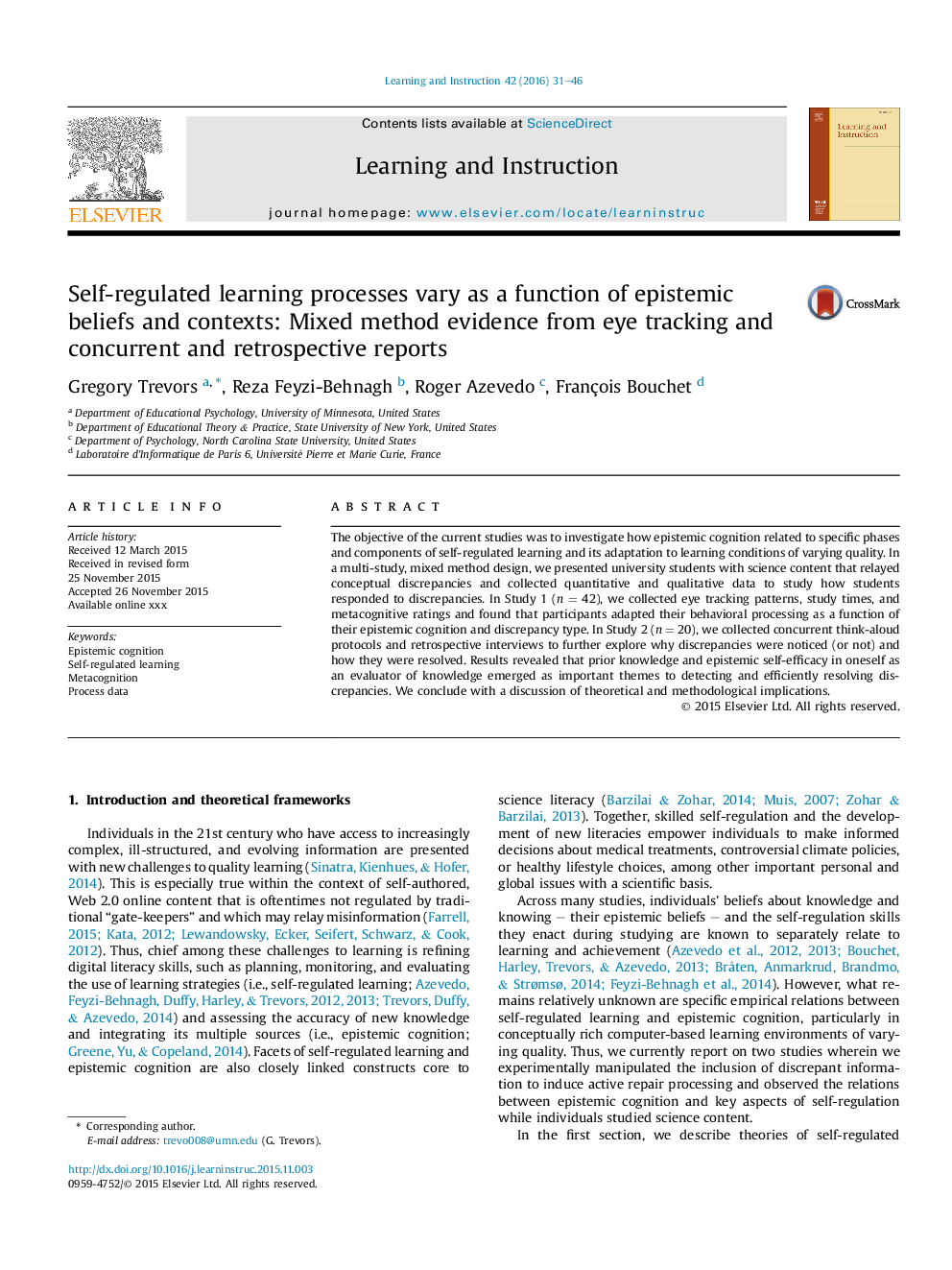| Article ID | Journal | Published Year | Pages | File Type |
|---|---|---|---|---|
| 6845770 | Learning and Instruction | 2016 | 16 Pages |
Abstract
The objective of the current studies was to investigate how epistemic cognition related to specific phases and components of self-regulated learning and its adaptation to learning conditions of varying quality. In a multi-study, mixed method design, we presented university students with science content that relayed conceptual discrepancies and collected quantitative and qualitative data to study how students responded to discrepancies. In Study 1 (n = 42), we collected eye tracking patterns, study times, and metacognitive ratings and found that participants adapted their behavioral processing as a function of their epistemic cognition and discrepancy type. In Study 2 (n = 20), we collected concurrent think-aloud protocols and retrospective interviews to further explore why discrepancies were noticed (or not) and how they were resolved. Results revealed that prior knowledge and epistemic self-efficacy in oneself as an evaluator of knowledge emerged as important themes to detecting and efficiently resolving discrepancies. We conclude with a discussion of theoretical and methodological implications.
Related Topics
Social Sciences and Humanities
Psychology
Developmental and Educational Psychology
Authors
Gregory Trevors, Reza Feyzi-Behnagh, Roger Azevedo, François Bouchet,
